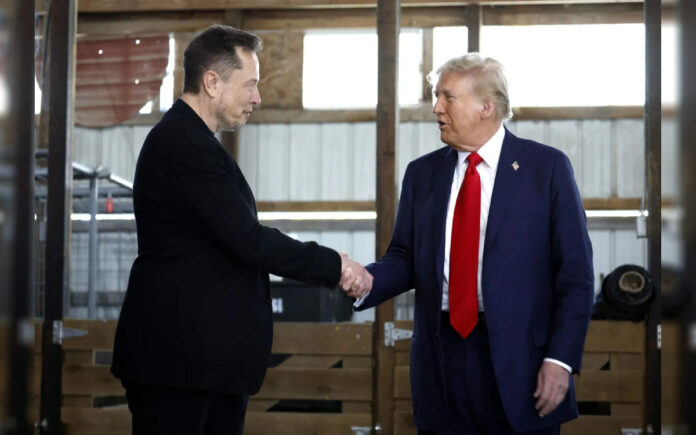Washington: The Trump transition team has proposed eliminating a federal car-crash reporting requirement opposed by Tesla, a move that could limit the government’s ability to regulate automated-driving systems. According to a document reviewed by the international news agency Reuters, the recommendation is part of a broader strategy aimed at loosening regulations for autonomous vehicles under the incoming administration.
Tesla, led by Elon Musk, has reported more than 1,500 crashes to the National Highway Traffic Safety Administration (NHTSA) under the rule since its establishment in 2021. The rule mandates automakers to report incidents where advanced driver-assistance systems (ADAS) or autonomous-driving technologies were engaged within 30 seconds of a crash. NHTSA has used the data to launch several investigations and recalls targeting Tesla’s “Autopilot” and “Full Self-Driving” systems.
President-elect Donald Trump's transition team wants to scrap a federal car-crash reporting rule for automakers, a move that would benefit Elon Musk's Tesla https://t.co/3SmRqWZ2iZ pic.twitter.com/QIMa3TmK64
— Reuters (@Reuters) December 14, 2024
Key Investigations Under the Rule
NHTSA has investigated fatal incidents involving Tesla’s Autopilot feature, including a 2023 crash in Virginia where a Tesla collided with a tractor-trailer and another in California where a Tesla struck a firetruck, killing the driver and injuring four firefighters.
The data collected under the reporting rule has been instrumental in identifying safety concerns in emerging technologies, leading to investigations into six companies and nine recalls involving four manufacturers, according to NHTSA. Without such data, the agency would struggle to detect crash patterns and address safety risks, said two former NHTSA employees.
Industry Resistance and Tesla’s Stance
Tesla has criticized the crash-reporting requirement as unfair, arguing that its advanced data collection makes it appear responsible for a disproportionate number of ADAS-related crashes. NHTSA has cautioned that the data should not be used to compare automakers, as companies collect crash information differently.
Legal experts, such as Bryant Walker Smith of the University of South Carolina, note that Tesla’s larger fleet of ADAS-equipped vehicles and frequent use of these systems likely result in more reported incidents than competitors.
Also Read | Former US House Speaker Pelosi Admitted to Hospital in Luxembourg
Despite this, Tesla executives have expressed frustration with the rule, alleging it misrepresents the company’s safety record. Internal discussions reportedly concluded that removing the rule would require a change in administration due to the Biden administration’s support for the program.
Regulatory Outlook
The Trump transition team’s recommendations include not only eliminating the crash-reporting rule but also “liberalizing” regulations for autonomous vehicles to encourage industry growth. Musk, who contributed significantly to Trump’s campaign, has advocated for a streamlined federal approval process for autonomous vehicles. After the 2016 election, Trump appointed Musk to co-lead a newly created Department of Government Efficiency, tasked with reducing federal regulations and expenditures.
Also Read | Antony Blinken Visits Iraq to Bolster Syria Transition Talks
The proposal has drawn criticism from safety advocates and highlights the ongoing tension between industry innovation and regulatory oversight.
Broader Implications
As Tesla and other automakers advance their driver-assistance technologies, debates over safety, transparency, and regulation remain critical. NHTSA’s crash-reporting rule has provided valuable insights into the risks associated with ADAS, but efforts to repeal it could reshape the landscape of autonomous vehicle safety.



